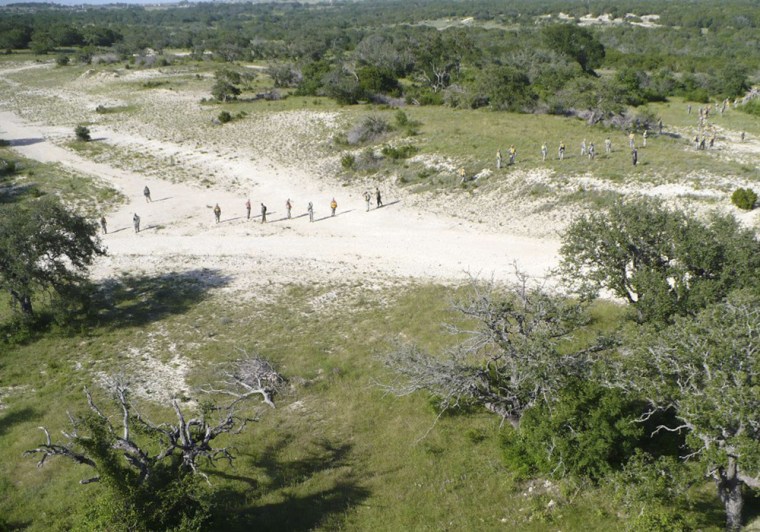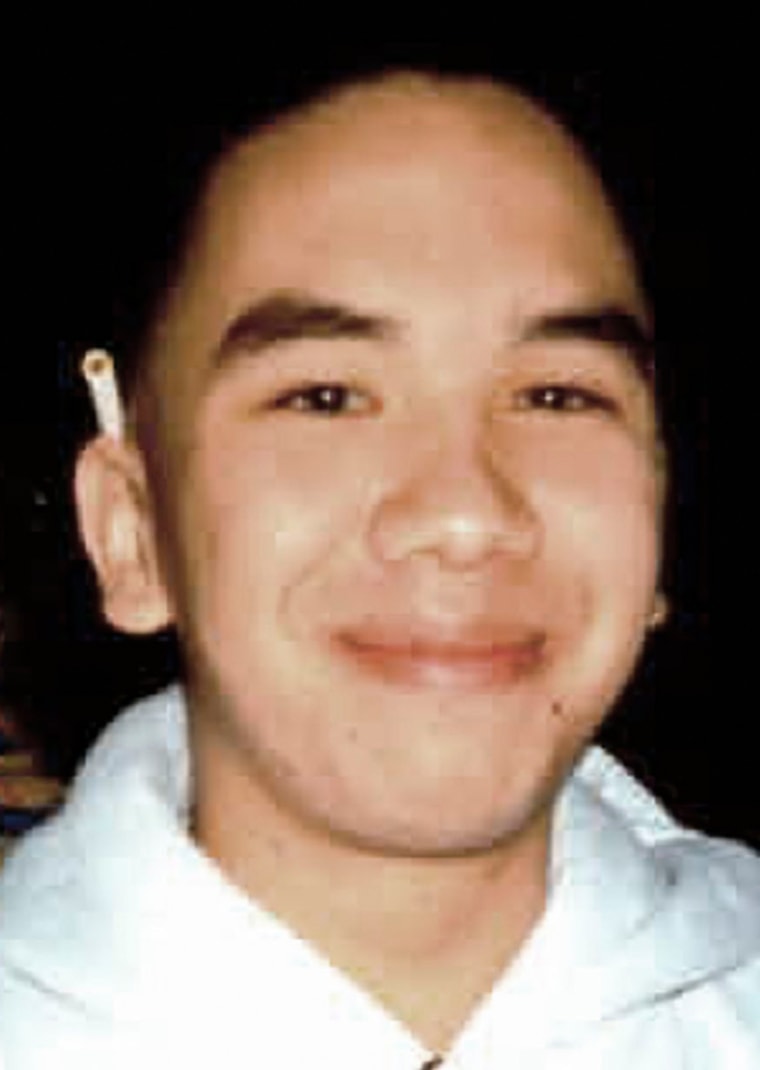Army Sgt. Lawrence Sprader set out under the searing Texas sun on a map-reading exercise, carrying a cell phone in case he got hopelessly lost or fell ill in the hills and ravines of Fort Hood. And still he didn’t make it out alive.
For more than an hour, a disoriented and dehydrated Sprader used his phone to repeatedly call superiors and tell them of his plight before the 24-year-old Iraq war veteran finally collapsed in the thick underbrush, where his decomposing body was discovered four days later.
How could that have happened?
A 1,700-page Army investigative report, obtained by The Associated Press through the Freedom of Information Act, details a multitude of procedural violations, judgment errors and alleged acts of misconduct by Army trainers that not only contributed to Sprader’s death but put some 300 other soldiers in danger that day, including about two dozen who required medical attention.
Among other things:
- The exercise was poorly planned and supervised, with trainers failing to patrol the countryside as required for soldiers in distress.
- Participants were not given enough time to fill their canteens.
- Trainers did not keep a close enough watch on the mid-90s heat and humidity.
- And the Army made little effort to find Sprader until the training exercise was over.
“It’s just something that shouldn’t have happened, but it did,” said his father Larry Sprader of Prince George, Va. “They should have been out there checking on the soldiers, but they weren’t.”
Trainers made into scapegoats?
Army officials last week announced they have suspended the officers in charge of the leadership-training academy that ran the exercise. Their lawyer said seven soldiers were reprimanded and another was demoted for lying about the timing of his last phone communication with Sprader. The eight could still face criminal charges.
Their lawyer, John P. Galligan, said the Army is trying to make scapegoats out of them.
“This is a tragic accident,” said Galligan, who, like the Army, declined to release the soldiers’ names. “I don’t know why people are trying to find some crime here.”
Sprader, who served twice in Iraq, disappeared June 8 — on a rugged, 1.5-square-mile expanse of scrub, tall grasses and cedar and juniper trees — during a solo exercise designed to test his map-reading and navigation skills. It was part of a two-week leadership skills course.
He was wearing a T-shirt, camouflage pants and a jacket and was equipped with a compass, map, knife and an M-16. He and some of the other soldiers also had cell phones. (According to the report, some did not know they could bring phones.)

At some point, Sprader lost his score sheet, on which he was supposed to check off certain landmarks he had to find. Knowing he would probably have to retake the course, Sprader evidently panicked and got himself badly lost, according to investigators.
Exactly how many calls he made is not specified in the report, but his father said there were 16 — about half outgoing, half incoming. The elder Sprader said the last seven were incoming.
Many were one-minute calls; according to the report, calls are frequently dropped in the remote area. The report indicates that Sprader talked to someone at least twice and that he said he could hear a vehicle’s horn. But the documents contain few details on what he said, or how lucid he might have been.
Phone can't pinpoint exact location
Typically, lost soldiers are rescued by trainers who honk their horns and rely on the trainees to listen for the sound and guide them in the right direction. Cell phone signals cannot be used to pinpoint a person’s location; they can only establish the general area where someone is believed to be.
Investigators found that Sprader and the 320 other soldiers participating had already been exposed to the heat for hours before starting the course about noon. They had done some practice drills beginning at 9 a.m.
The exercise was moved up from 1 p.m. because of the heat. As a result, the soldiers were rushed through a lunch break. Investigators believe Sprader did not have a chance to refill his two one-quart canteens before being sent out on the timed exercise.
Temperatures were in the low to mid-90s, and the heat index — the combined effect of heat and humidity — was measured at Category 5, the highest possible, at 11 a.m. at a nearby airport. Some soldiers were overcome by heat before the exercise even began.
Army policy requires those in charge to monitor the heat index before and during such exercises. If the index is high, they are supposed to warn soldiers to avoid overexertion and dehydration and, if the conditions are deemed dangerous, call off the exercise.
Troops faced dehydration
The Army report said that leaders of the group that included Sprader did not adequately monitor those conditions. But the report stops short of saying the leaders should have called off the exercise.
More than a dozen soldiers ran out of water before completing the course and called to be picked up, some complaining of dizziness, vomiting or severe leg cramps.
A medic told investigators he suggested the exercise be stopped because of the mounting casualties. But he said he was told that only 10 minutes remained in the exercise, that only one soldier was missing and that such a decision would result in too much paperwork.
All names except Sprader’s were blacked-out in the report released to the AP.
In statements to investigators, soldiers who participated in the training described chaotic, almost battlefield conditions. Some appeared to have passed out after completing the exercise; others received fluids intravenously.
“I start to see other soldiers just as I am. They are drenched in sweat and red in the face,” one soldier said in a handwritten statement. “I don’t have water. I notice many people laying in the shade looking passed out ... many calls for a medic.”
By the time the exercise ended at about 3:15 p.m., at least 20 soldiers were treated in the field for heat-related illnesses. Six others were taken to an Army hospital emergency room, including one who lost consciousness on the way.
According to the report, training leaders failed to ensure soldiers were drinking enough water and refilling their canteens.
Full-scale search delayed
Also, investigators found there were too few water vehicles and leaders patrolling the course. Some trainers said they went out only after getting calls to help dehydrated or lost students, although they were supposed to be continuously patrolling on foot and in vehicles.
Sprader made his first call at 2:08 p.m., and not long after, three people went looking for him in a vehicle, according to the report. But the Army did not begin to mount a larger search until about 3:30 p.m., after the exercise was over and he was the only person still missing.
Training leaders are required to notify their superiors within an hour after a soldier is lost. But investigators said that wasn’t done until about 6 p.m.
One soldier said that during the search, leaders “thought that it was a joke and were laughing and telling jokes throughout the day and didn’t take it seriously.” Another soldier said there were rumors that Sprader had gone AWOL or claimed he was bitten by a snake.
The soldier demoted for lying told investigators that Sprader called at 3:15 and 4:45 p.m., but Sprader’s cell phone records show the last outgoing call at 2:56 and the last incoming call at 3:08. Both calls went unanswered.
On June 12, after finally receiving information about the location of Sprader’s phone calls based on cell towers, hundreds of soldiers went to that area. After a few smelled a strong odor, Sprader’s body was discovered.
His empty canteens and a cap were found about 100 yards away.
